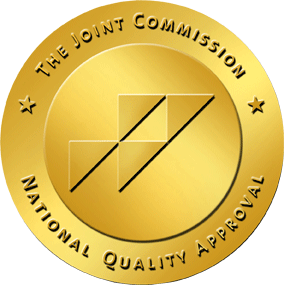Introduction to Anorexia
Anorexia nervosa, commonly known simply as anorexia, is a complex and often misunderstood eating disorder characterized by an intense fear of gaining weight and a distorted body image. This comprehensive guide aims to shed light on the realities of anorexia, moving beyond common misconceptions to provide a deeper understanding of the condition.
Defining Anorexia: More Than a Diet
Anorexia is often mistakenly seen as just an extreme diet or a phase of intense weight loss. However, it’s crucial to recognize that anorexia is a serious mental health disorder with significant physical and psychological consequences. It’s more than just a desire to be thin; it’s a coping mechanism intertwined with deep-seated emotional issues.
The Psychology Behind Anorexia
The psychological aspects of anorexia are complex. It often stems from a combination of low self-esteem, perfectionism, and a need for control. Understanding these psychological underpinnings is essential for effective treatment and recovery.
Signs and Symptoms
Physical Indicators
Physical signs of anorexia include dramatic weight loss, fatigue, and changes in skin, hair, and nail health. These are often the most visible signs, but they are just the tip of the iceberg.
Behavioral Signs
Behavioral symptoms can be more challenging to detect. They include obsessive calorie counting, avoidance of social situations involving food, and a preoccupation with food, dieting, and exercise.
Causes of Anorexia
Biological Factors
Research suggests a genetic component to anorexia, indicating that some people might be more predisposed to developing the disorder.
Environmental Influences
Environmental factors, such as cultural and societal standards of beauty, play a significant role in the development of anorexia. Pressures to conform to certain body standards can trigger disordered eating behaviors.
Psychological Triggers
Psychological triggers include traumatic events, stress, and other mental health disorders like anxiety and depression, which can contribute to the onset of anorexia.
Anorexia and Physical Health
Impact on Body Systems
Anorexia can severely impact almost every body system, including the cardiovascular, gastrointestinal, and endocrine systems, leading to a host of health issues.
Long-term Health Risks
The long-term risks of untreated anorexia are severe and can include osteoporosis, infertility, and heart problems, among others.
Anorexia in Different Demographics
Prevalence in Age Groups
Anorexia is most commonly diagnosed in adolescents, but it can affect individuals of any age, including children and older adults.
Gender Differences in Anorexia
While traditionally seen as a disorder affecting women, an increasing number of men are being diagnosed with anorexia, challenging gender stereotypes and highlighting the need for inclusive approaches in treatment and awareness.
Coping Strategies
Professional Therapy Options
Professional therapy, including cognitive-behavioral therapy (CBT) and family-based therapy (FBT), is a cornerstone of anorexia treatment. These therapies aim to address both the eating behaviors and the underlying emotional issues.
Self-help Techniques
Self-help techniques, such as mindfulness and stress management, can be valuable adjuncts to professional treatment, empowering individuals to play an active role in their recovery.
Nutrition and Anorexia
Building a Healthy Diet Plan
Creating a balanced and healthy diet plan is a critical component of recovery from anorexia. This involves relearning healthy eating habits and understanding the body’s nutritional needs.
Nutritional Rehabilitation
Nutritional rehabilitation in anorexia focuses on restoring weight and correcting nutritional deficiencies, often requiring a multidisciplinary approach involving dietitians, therapists, and medical professionals.
The Role of Family and Friends
How to Offer Support
The support of family and friends is crucial in the recovery from anorexia. Understanding how to provide effective support, while respecting the individual’s autonomy, is key.
Recognizing When to Seek Help
It’s important for family and friends to recognize the signs of anorexia and understand when professional help is needed, as early intervention can significantly improve the chances of recovery.
Recovery and Management
Long-term Management Strategies
Managing anorexia is often a long-term process. Strategies include ongoing therapy, support groups, and regular medical check-ups to ensure physical and mental health.
Success Stories and Inspirational Accounts
Hearing from others who have successfully navigated the journey of recovery can provide hope and inspiration to those currently struggling with anorexia.
Anorexia: Breaking the Stigma
Addressing and breaking the stigma surrounding anorexia is vital for increasing understanding and support for those affected by this disorder. This includes challenging stereotypes and promoting open, honest conversations about mental health.
Legal and Ethical Considerations
Patient Rights and Ethical Treatment
It’s important to understand the legal rights of individuals with anorexia, especially in cases where they may be unable to make decisions for themselves. Ethical treatment involves respecting these rights and ensuring that care is patient-centered and compassionate.
Legal Considerations in Severe Cases
In severe cases of anorexia, legal considerations such as involuntary treatment may become necessary. These decisions are complex and require careful ethical deliberation.
Anorexia in Popular Culture
Media Influence and Representation
The media’s portrayal of anorexia can have a profound impact on public perception and individual experiences of the disorder. Examining these influences is crucial for understanding and addressing anorexia in a broader societal context.
Impact of Social Media
Social media plays a significant role in shaping attitudes toward body image and can both negatively and positively influence those with anorexia. Navigating this digital landscape requires awareness and critical thinking.
Hope and Healing
It’s important to emphasize that while anorexia is a serious and challenging disorder, recovery is possible. With the right support, treatment, and resources, individuals can rebuild their health and lives.
Anorexia FAQs
Anorexia involves restriction of food intake leading to a significantly low body weight, intense fear of gaining weight, and body image disturbances.
Absolutely, yes! Many men suffer from Anorexia, yet many suffer in silence. I believe this is largely due to stigma surrounding men having emotions, needing help, and having body image disturbances, which may prevent men from seeking medical/therapeutic help.
Learn as much as you can about the Anorexia. Find a time and place to talk privately about your concerns and that you want them to seek treatment. Find local treatment centers so you can offer them professional anorexia specific care options. Make sure to listen to them and let them know you want to see them heal.
Yes. Eating disorders do not exist in isolation which is why we always say that they should be treated along with trauma to get to the root cause. With the help of mental health professionals and dietitians, anorexia is treatable.
Every person is different, but the long-term effects are serious and can be fatal. Some of the side effects are anemia, low blood pressure, gastrointestinal issues, poor circulation, hair loss, loss of period, dehydration and more.
Culture is one of the many factors that can contribute to the development of Anorexia. With the rise of social media over the years, people have nearly unlimited access to seeing pictures of others with “desirable” body shapes and sizes, and photoshopped pictures, as well as ways to compare themselves to others.
Comparing ourselves to others on social media can reinforce messaging that we are not good/pretty/funny/loved/successful enough and make us feel bad about ourselves.
Other cultural factors that play in the development of Anorexia include fatphobia, diet culture, thin privilege, unrealistic standards, and glorifying busyness as a badge of honor.
There is never one exact reason why people develop eating disorders, which means that we must address multiple sources while treating eating disorders.
Most people with eating disorders have co-morbidities with other diagnoses such as Major Depressive Disorder, Generalized Anxiety Disorder, Borderline Personality Disorder, Bipolar Disorder, and Post-Traumatic Stress Disorder to name a few.
At Skyway, we treat eating disorders and trauma at the same time, and all our therapists are trained in trauma treatment.
Our goal is to help clients reduce eating disorder behaviors and display ability to sit with distressing emotions without avoiding (i.e., engaging in ED behaviors, self-harm, suicidal ideation, etc.) to begin addressing their trauma.



